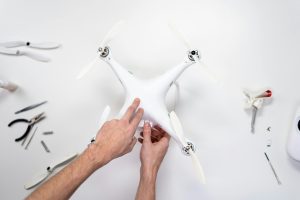The Evolution of Home Automation: Beyond Basic Smart Plugs
The concept of home automation has come a long way since its inception. What started with simple smart plugs for controlling lights and appliances has now evolved into something far more advanced. With the rise of artificial intelligence and the Internet of Things, the possibilities for home automation have become endless. In this article, we will take a deeper look into the evolution of home automation and explore the next level of smart home technology beyond basic smart plugs.
The Rise of Basic Smart Plugs
Smart plugs were one of the first products to introduce the concept of home automation to the average consumer. These simple devices plug into a standard electrical outlet and allow you to control the power supply to any device plugged into them. They can be controlled through a designated app on your smartphone or by using voice commands with a smart assistant like Amazon Alexa or Google Home.
With basic smart plugs, you can turn off lights, TVs, or kitchen appliances remotely, saving energy and adding convenience to your daily routine. They have become a popular choice for those looking to dip their toes into the world of home automation without breaking the bank. However, as technology evolves, so do our expectations for what home automation can do for us.
The Next Level of Smart Home Technology
Smart Home Hubs
Smart home hubs act as the central control center for all your smart devices. They allow you to connect and control different devices from different brands using a single app or voice commands. These hubs also offer advanced features like creating routines, setting schedules, and automating tasks based on your location or other triggers. With the ability to integrate multiple devices and create complex automations, smart home hubs take home automation to the next level.
Voice Control
Voice control has been a game-changer in the world of home automation. With the rise of smart assistants like Amazon Alexa and Google Home, controlling your smart home devices has become easier than ever. Voice commands allow for hands-free operation, making tasks like turning on the lights or adjusting the thermostat a breeze. With advancements in natural language processing, voice control is becoming more sophisticated and reliable, allowing you to control your entire home with just your voice.
Artificial Intelligence
The integration of artificial intelligence (AI) has opened up a whole new world of possibilities for home automation. AI-powered devices can learn from your behaviors and preferences and adjust accordingly. For example, a smart thermostat with AI technology can anticipate when you will be home and adjust the temperature to your liking. AI can also be used to automate tasks like turning on the lights when you enter a room or starting your coffee maker when you wake up.
The Future of Home Automation
As technology continues to advance, the possibilities for home automation are endless. Researchers are exploring ways to integrate augmented and virtual reality to enhance the smart home experience. Imagine being able to control your entire home with just a wave of your hand or seeing virtual pop-up screens for managing smart devices throughout your home.
The integration of smart home technology with other industries like healthcare and security is also on the horizon. Smart homes have the potential to improve our overall well-being by monitoring our health, providing personalized recommendations, and even alerting us of potential health risks. They can also enhance our home security with features like facial recognition, voice detection, and automated door locks.
In Conclusion
The evolution of home automation has taken us from basic smart plugs to a world of intricate and interconnected smart home technology. With advancements in AI, voice control, and the integration of other technologies, the future of home automation looks bright and promising. As more and more people embrace this technology, our homes will become smarter, more efficient, and more personalized than ever before.










